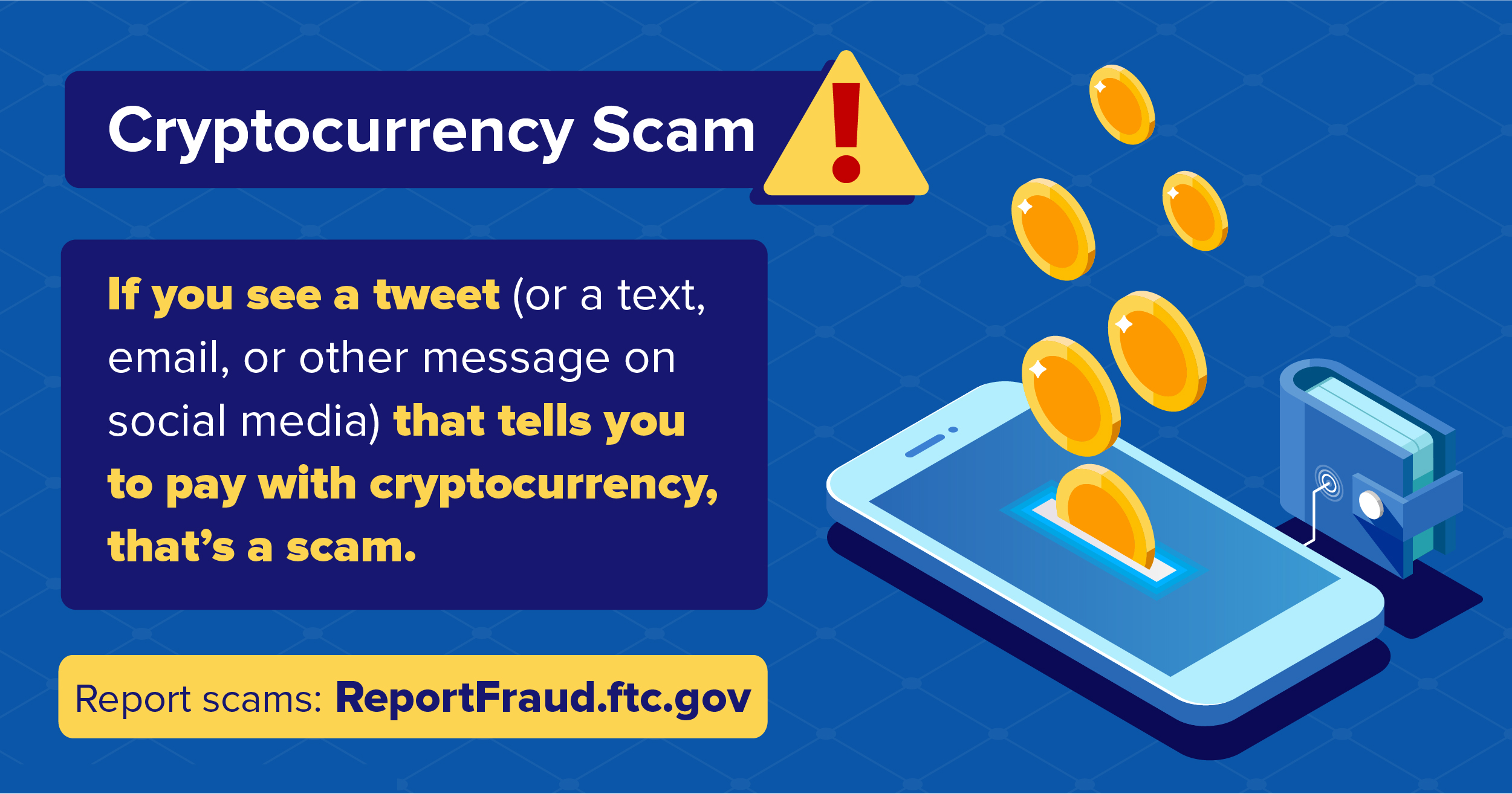What to Do if You’ve Been Scammed in a Cryptocurrency Deal: Step-by-step action plan

- Recognizing the signs of a cryptocurrency scam
- Steps to take immediately after realizing you’ve been scammed
- How to report the scam to the appropriate authorities
- Seeking legal advice and assistance in recovering your funds
- Protecting yourself from future cryptocurrency scams
- Educating others on how to avoid falling victim to similar scams
Recognizing the signs of a cryptocurrency scam
When dealing with cryptocurrency, it is crucial to be aware of the signs of a potential scam. Here are some red flags to watch out for:
- Unsolicited offers that seem too good to be true
- Pressure to act quickly or urgently
- Requests for personal information or access to your wallet
- Guarantees of high returns with little to no risk
- Complex investment strategies that are difficult to understand
By recognizing these warning signs, you can protect yourself from falling victim to a cryptocurrency scam. If you have already been scammed, it is important to take immediate action to minimize the damage.
Steps to take immediately after realizing you’ve been scammed
Immediately after realizing you have fallen victim to a cryptocurrency scam, it is crucial to take swift action to mitigate any further damage. Here are the steps you should follow:
- **Cease all Communication:** The first step is to stop all communication with the scammer. Do not respond to any further messages or requests for money.
- **Document Everything:** Keep a record of all communication, transactions, and any other relevant information related to the scam. This documentation will be valuable when reporting the incident to the authorities.
- **Contact Your Bank or Financial Institution:** If you have provided any banking or credit card information to the scammer, contact your bank or financial institution immediately to report the fraud and take necessary steps to protect your accounts.
- **Report the Scam:** Report the scam to the appropriate authorities, such as the Federal Trade Commission (FTC) or the Securities and Exchange Commission (SEC). Provide them with all the documentation you have gathered.
- **Change Your Passwords:** If you have shared any passwords or sensitive information with the scammer, change your passwords immediately to prevent further unauthorized access to your accounts.
- **Educate Yourself:** Take this experience as a lesson and educate yourself on how to spot and avoid cryptocurrency scams in the future. Stay informed about the latest scam tactics and protect yourself from falling victim again.
By following these steps promptly, you can minimize the impact of the scam and take proactive measures to safeguard your finances and personal information. Remember, it is essential to act quickly and decisively to protect yourself in the aftermath of a cryptocurrency scam.
How to report the scam to the appropriate authorities
To **report** the **scam** to the **appropriate authorities**, you should **gather** all **relevant** information **related** to the **incident**. This **includes** **details** such as **dates**, **amounts**, **communication** **records**, and **any** other **evidence** you **have**. **Having** this **information** **ready** will **help** **authorities** **investigate** the **matter** more **effectively**.
Once you **have** **collected** all **necessary** **information**, you **can** **proceed** to **report** the **scam**. **Depending** on the **nature** of the **incident**, you **may** **need** to **contact** **different** **agencies**. **For** **example**, if the **scam** **involves** **fraud**, you **should** **report** it to the **Federal** **Trade** **Commission** (FTC) or the **Consumer** **Financial** **Protection** **Bureau** (CFPB).
In **addition** to **filing** a **report** with the **appropriate** **agencies**, you **should** also **consider** **contacting** your **local** **law** **enforcement** **agency**. **They** **may** **be** **able** to **assist** in **investigating** the **matter** and **potentially** **recovering** any **lost** **funds**.
Remember to **keep** **detailed** **records** of all **communications** **related** to the **scam** **reporting** **process**. **This** **includes** **emails**, **phone** **calls**, and **any** **other** **correspondence**. **Having** **this** **information** **on** **hand** **will** **help** **authorities** **build** a **strong** **case** **against** the **scammers**.
By **taking** **these** **steps** and **reporting** the **scam** to the **appropriate** **authorities**, you **are** **doing** your **part** to **help** **protect** **others** from **falling** **victim** to **similar** **schemes**. **Remember** to **stay** **vigilant** and **educate** **yourself** on **how** to **spot** **potential** **scams** in the **future**.
Seeking legal advice and assistance in recovering your funds
If you have fallen victim to a cryptocurrency scam, it is crucial to seek legal advice and assistance in **recovering** your funds. **Consulting** with a **knowledgeable** attorney who specializes in **financial fraud** cases can **greatly** increase your chances of **recouping** your losses. Here are some steps to take when seeking legal help:
1. **Research** reputable **law firms** that have experience **handling** cryptocurrency **scams**. Look for **reviews** and **testimonials** from **previous** clients to **ensure** you are **choosing** a **reputable** attorney.
2. **Schedule** a **consultation** with the attorney to **discuss** your case in **detail**. Be **prepared** to provide any **documentation** or **evidence** you have **related** to the **scam**, such as **emails**, **transaction** records, or **communication** with the **scammer**.
3. **Follow** the **advice** of your attorney **closely**. They will **guide** you through the **legal** process of **recovering** your funds and **represent** you in **negotiations** with the **scammer** or their **representatives**.
4. **Stay** **informed** about the **progress** of your case and **be** **patient**. **Legal** proceedings can take **time**, but having a **dedicated** attorney **working** on your behalf can **help** expedite the **process**.
5. **Keep** **records** of all **communications** with your attorney and any **updates** on your case. This **information** may be **useful** in **future** **legal** **proceedings** or **claims** against the **scammer**.
By **seeking** **legal** **advice** and **assistance**, you are **taking** a **proactive** step towards **recovering** your **funds** and **holding** the **scammer** **accountable** for their **actions**. **Don’t** **hesitate** to **reach** out to a **qualified** attorney for **help** in **fighting** back against **cryptocurrency** **scams**.
Protecting yourself from future cryptocurrency scams
Protecting yourself from future cryptocurrency scams is crucial in the ever-evolving digital landscape. Here are some steps you can take to safeguard your investments:
- Research before investing: Always conduct thorough research on any cryptocurrency project before investing your money. Look into the team behind the project, the technology they are using, and the problem they are trying to solve.
- Use reputable exchanges: Stick to well-known and reputable cryptocurrency exchanges to minimize the risk of falling victim to a scam. Check reviews and ratings before creating an account.
- Enable two-factor authentication: Adding an extra layer of security to your cryptocurrency accounts can help prevent unauthorized access. Enable two-factor authentication wherever possible.
- Be cautious of unsolicited offers: If you receive unsolicited offers or messages promoting cryptocurrency investments, be wary. Scammers often use these tactics to lure in unsuspecting victims.
- Keep your private keys secure: Your private keys are the access codes to your cryptocurrency holdings. Keep them safe and never share them with anyone.
Educating others on how to avoid falling victim to similar scams
It is crucial to educate others on how to avoid falling prey to similar scams in cryptocurrency deals. By sharing your experience and the steps you took to address the situation, you can help others recognize warning signs and protect themselves from fraudulent schemes. Here are some ways you can educate others:
- Share your story on social media platforms to raise awareness about the risks associated with cryptocurrency transactions.
- Participate in online forums and discussions to provide insights and tips on how to verify the legitimacy of cryptocurrency offers.
- Host workshops or webinars to teach people about the importance of conducting thorough research before investing in cryptocurrencies.
- Collaborate with local authorities and consumer protection agencies to develop educational campaigns on cryptocurrency scams.
By taking proactive steps to educate others, you can help prevent future victims from falling for similar scams and contribute to a safer cryptocurrency environment for everyone.




